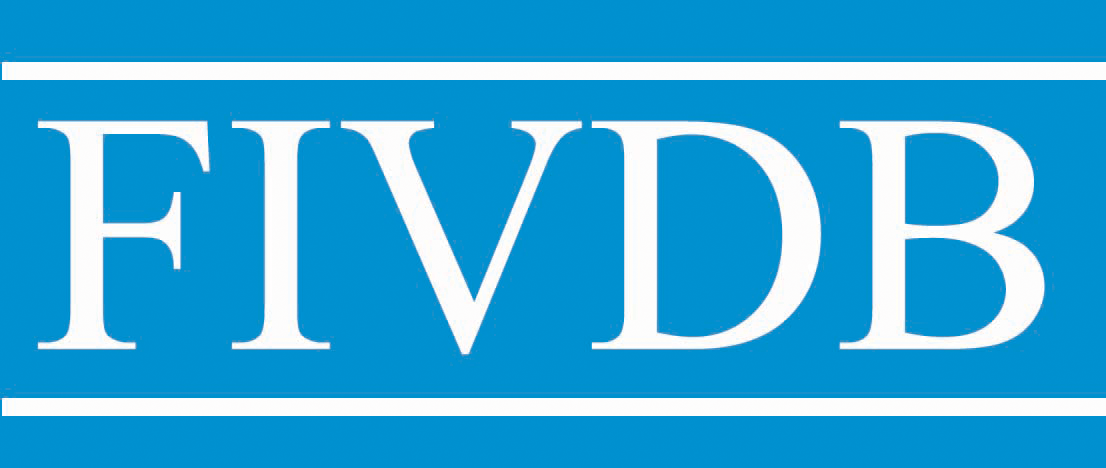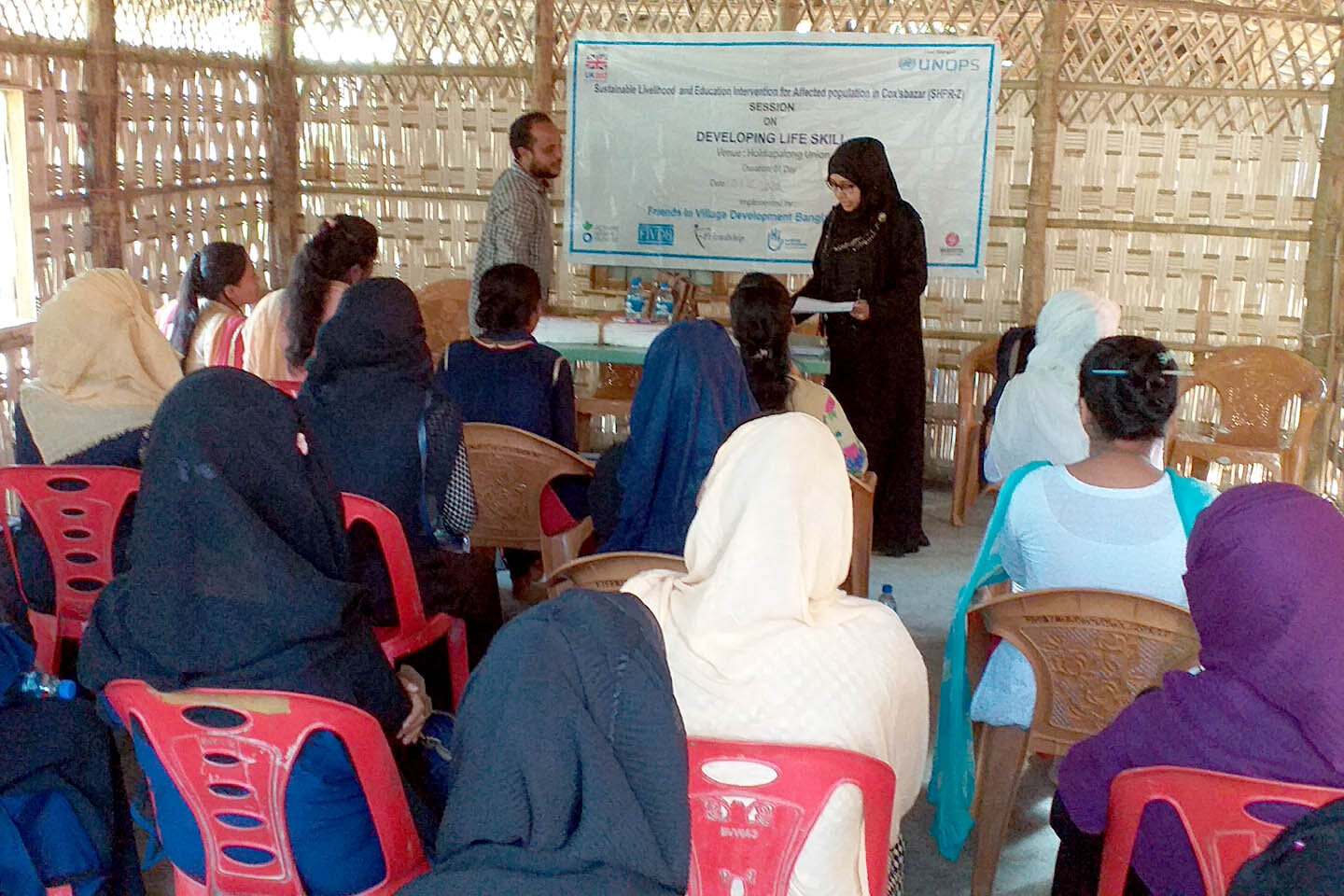
Humanitarian Response
services are: mental health care, human rights education, disability care, widow and orphan support, financial literacy, food security training etc
FIVDB began working with the Rohingya shortly after August 2017, when a military campaign that has been called a “textbook example of ethnic cleansing” forced over 700,000 Rohingya, an ethnic minority in Myanmar, to flee, seeking shelter in neighboring Bangladesh.
The Rohingya refugee camps in Cox’s Bazar are now the largest refugee settlement in the world, as hundreds of thousands of families face crowded conditions with little opportunity for movement, development or justice.
In a situation where families have lost almost everything, FIVDB’s programs are mindful of psychological trauma and work to de-stigmatize mental health care. Our public health approach connects peer counselors from the Cox’s Bazar community with Rohingya families to address the changing needs of a population shifting from an acute emergency to chronic displacement. We work alongside Rohingya and host communities to connect people to comprehensive care and support.
The program’s core features include culturally appropriate mental health care, human rights education, disability care, widow and orphan support services, financial literacy and structural safe spaces. We also provide essential training and resources for food security such as agriculture support and cooking stoves plus gas refills. In 2019, we started a literacy and life skills education program for adolescent girls housed at our five Women Friendly Spaces. Our community facilitators engage with the community at each of our facilities in Camp 14 and 21, and during regular shelter check-ins. Whether bringing aid, teaching classes or simply offering a listening ear, FIVDB’s team of community facilitators strive every day to support those who need it most.


